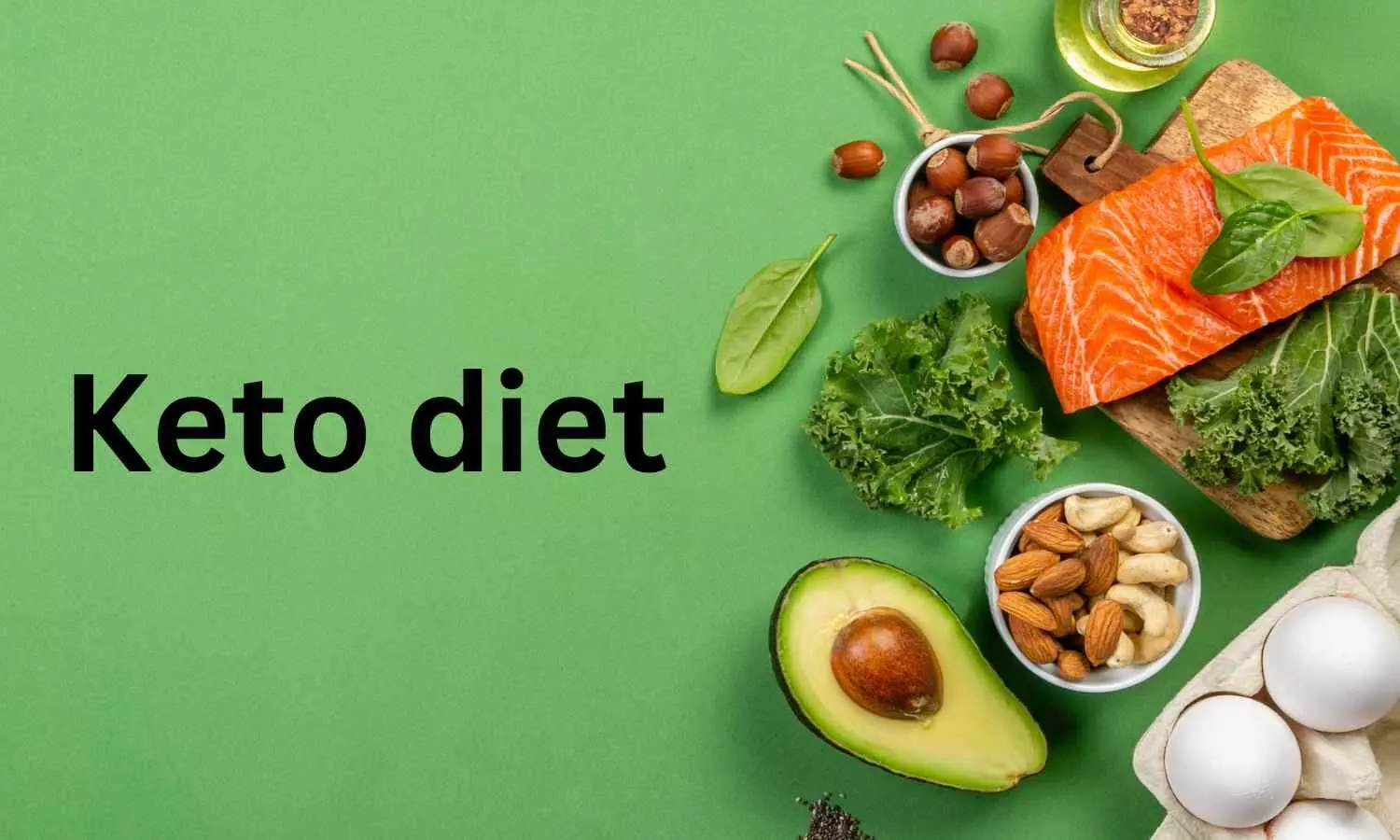Can a keto diet help protect brain energy?
- byDoctor News Daily Team
- 13 October, 2025
- 0 Comments
- 0 Mins

There may be a way to protect brain energy to preserve cognition — and the secret could lie on your plate. Think fish and seafood, meat, non-starchy vegetables, berries, nuts, seeds, eggs and even high-fat dairy products. University of Missouri researchers are now testing just how powerful these foods can be. They’ve found that a high fat,low carb diet— known as theketogenic diet— may not only preserve brain health but also stop or slow the signs of cognitive decline for those at higher risk of developingAlzheimer’s disease. In the Roy Blunt NextGen Precision Health building, Ai-Ling Lin, a professor in the School of Medicine, and doctoral student Kira Ivanich are studying whether a ketogenic diet can be particularly helpful for those born with the APOE4 gene, the strongest known genetic risk factor for late-onset Alzheimer’s disease. In a recent study involving mice, they found that females with the APOE4 gene had healthiergut bacteriaand more brain energy while eating a ketogenic diet compared to a control group eating a higher-carb diet. While males did not see these same improvements, the study offers insight into who may benefit the most from eating a ketogenic diet. That’s because the diet changes how the brain fuels itself. “When we eat carbs, our brains convert the glucose into fuel for our brains, but those with the APOE4 gene — particularly females — struggle to convert the glucose into brain energy, and this can lead to cognitive decline down the road,” Ivanich said. “By switching to a keto diet, ketones are produced and used as an alternative fuel source. This may decrease the chance of developing Alzheimer’s by preserving the health of brain cells.” The results highlight the importance of precision nutrition — tailoring diets and interventions to those who would benefit most. “Instead of expecting one solution to work for everyone, it might be better to consider a variety of factors, including someone’s genotype, gut microbiome, gender and age,” Lin said. “Since the symptoms of Alzheimer’s — which tend to be irreversible once they start — usually appear after age 65, the time to be thinking about preserving brain health is well before then, so hopefully our research can offer hope to many people through early interventions.” Lin came to Mizzou for interdisciplinary collaboration and the state-of-the-art imaging equipment in the NextGen Precision Health building and at the University of Missouri Research Reactor. “We can do a lot of things in-house here that at other places we would have to outsource,” Lin said. “This is team science. The impact we make will be much better when we work together than by ourselves.” With cutting-edge imaging equipment and both research and clinical spaces under the same roof, the NextGen Precision Health building allows Mizzou to move quickly from preclinical models to human trials. For Ivanich, that real-world impact is personal. “When my grandmother got Alzheimer’s, that sparked my interest in this topic, so being able to make an impact to help people preserve their brain health is very rewarding,” she said. “With Mizzou being a leading research university and having a tight-knit community feel, I know I’m at the right place.” “Ketogenic diet modulates gut microbiota-brain metabolite axis in a sex-and genotype-specific manner in APOE4 mice” was published in theJournal of Neurochemistry. Kira Ivanich, Andrew Yackzan, Abeoseh Flemister, Ya-Hsuan Chang, Xin Xing, Anna Chen, Lucille M. Yanckello, McKenna Sun, Chetan Aware, Maalavika Govindarajan, Ketogenic Diet Modulates Gut Microbiota–Brain Metabolite Axis in a Sex- and Genotype-Specific Manner in APOE4 Mice, Journal of Neurochemistry, https://doi.org/10.1111/jnc.70216
Disclaimer: This website is designed for healthcare professionals and serves solely for informational purposes.
The content provided should not be interpreted as medical advice, diagnosis, treatment recommendations, prescriptions, or endorsements of specific medical practices. It is not a replacement for professional medical consultation or the expertise of a licensed healthcare provider.
Given the ever-evolving nature of medical science, we strive to keep our information accurate and up to date. However, we do not guarantee the completeness or accuracy of the content.
If you come across any inconsistencies, please reach out to us at
admin@doctornewsdaily.com.
We do not support or endorse medical opinions, treatments, or recommendations that contradict the advice of qualified healthcare professionals.
By using this website, you agree to our
Terms of Use,
Privacy Policy, and
Advertisement Policy.
For further details, please review our
Full Disclaimer.
Recent News
NEET 2025: TN Health extends round 3 choice fillin...
- 31 October, 2025
DME Gujarat extends PG Ayurveda, Homeopathy round...
- 31 October, 2025
Decade-Long Study of PCI and CABG in Left Main Cor...
- 31 October, 2025
Daily Newsletter
Get all the top stories from Blogs to keep track.


0 Comments
Post a comment
No comments yet. Be the first to comment!